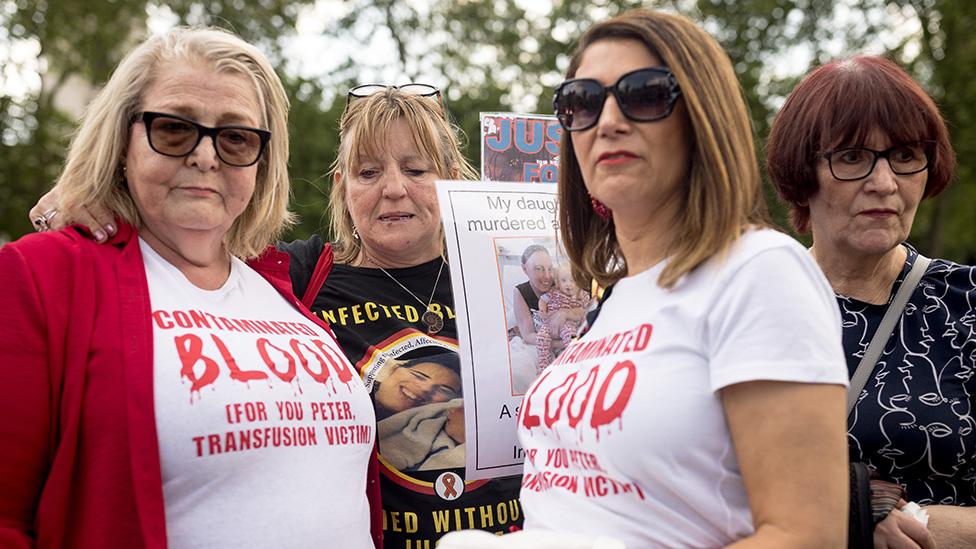Contaminated blood scandal: 'Debt of gratitude to victims'
- Published
Infected blood was "another death sentence"
Wales "owes a debt of gratitude" to those who campaigned about the contaminated blood scandal, says the health minister.
Vaughan Gething said there was a "real sense of embarrassment" that it happened in the NHS.
But it was important people heard about the human cost and the fact it was not dealt with early enough.
Victims and their families are giving evidence for a second day at a UK-wide public inquiry in Cardiff.
Patients contracted HIV or hepatitis from contaminated blood products in the 1970s and 80s, leading to around 2,400 UK-wide deaths.
There are at least 300 victims from Wales but it was 35 years before the UK government agreed to a public inquiry, led by a former high court judge.
This has been holding evidence sessions across the UK.
The first day in Cardiff heard from the widows of two victims and a man who contracted hepatitis from contaminated blood but was speaking publicly about it for the first time in 34 years.
Geraint Jones, from Pontardawe, Swansea valley, was given infected blood in a transfusion in 1990 after losing his leg in a forklift truck accident at work. He died in 2012.
His wife Karisa told the inquiry: "He suffered and he suffered so badly. He was just a skeleton of a man.
"I have never seen such a horrific death in all my life."
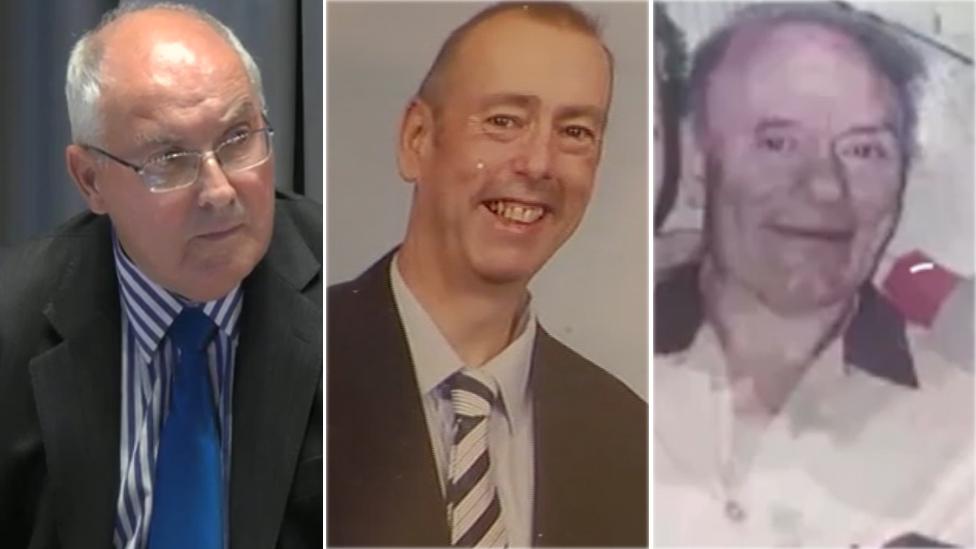
Gerald Stone gave evidence on Monday about affected blood affected his life, while the widows of Geraint Jones and Les Sparkes, described losing their husbands
Mr Gething said: "The best way to honour the debt of gratitude is to resolve the challenges that we have today, learn lessons from the inquiry and its recommendations and then to be able to visibly demonstrate what changes we've made - how those benefit people today and crucially people who aren't here but rely on our services into the future."
He said the blood service was much safer now but there was a need for closure for victims and families had good reason to be angry.
He said the campaigners' tenacity and the lessons learned would make the NHS safer.
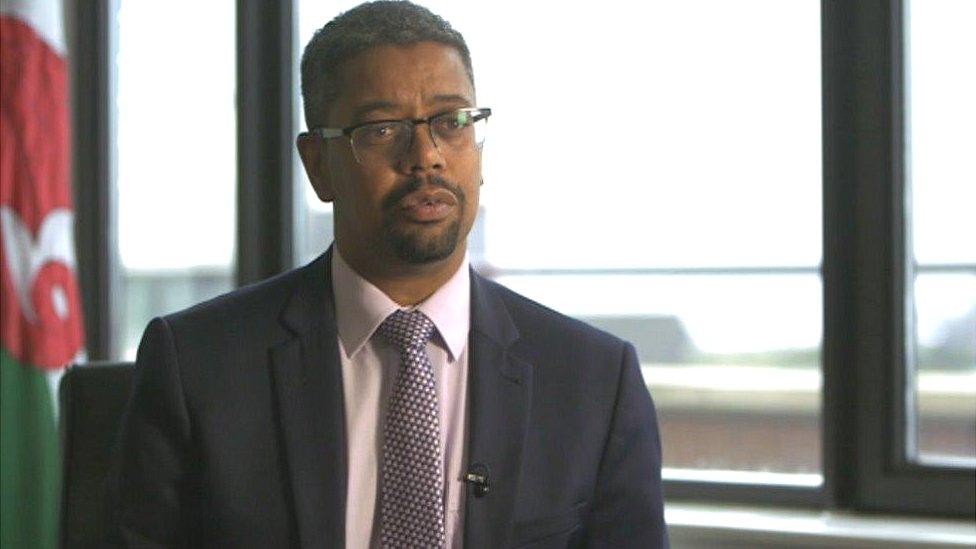
Vaughan Gething promises to act on the inquiry recommendations
The Welsh Government has promised to take the recommendations seriously.
Plaid Cymru health spokesman Rhun ap Iorwerth said the injustice was "startling" and he had so much admiration for constituents who did not give in.
"I've heard some incredibly upsetting stories, people who lived through the shame of being affected by HIV and Hepatitis C through no fault of their own. And then having to have to fight for answers."
He said government should not wait for the end of the inquiry to ensure families were fairly and equally supported - and should be paid for by UK government.
But he said there were steps Welsh Government could take now to help in the meantime.
Jennifer Hutchinson was diagnosed with hepatitis C, 34 years after receiving contaminated blood
Conservative health spokeswoman Angela Burns said it "showed the system at its absolute worst" and the Welsh Government needed to adopt the recommendations "wholeheartedly".
There had been "massive hurt" because of the cover-up, as well the health effects and she said all governments needed to "get their act together" so everyone had the right level of support and compensation.
In figures
350whole blood donations needed each day
98,000blood cells collected a year
12,500units of blood platelets per year
70%of blood needed for patients with medical conditions
25% for patients losing blood after an accident
5%for mothers who have lost blood in childbirth
The blood supply chain in the UK is now among the safest in the world, with donors screened and every unit of blood collected rigorously tested for a number of infectious diseases before it is issued to hospitals.
The Welsh Blood Service collects at around 400 different venues across the country.
- Published23 July 2019
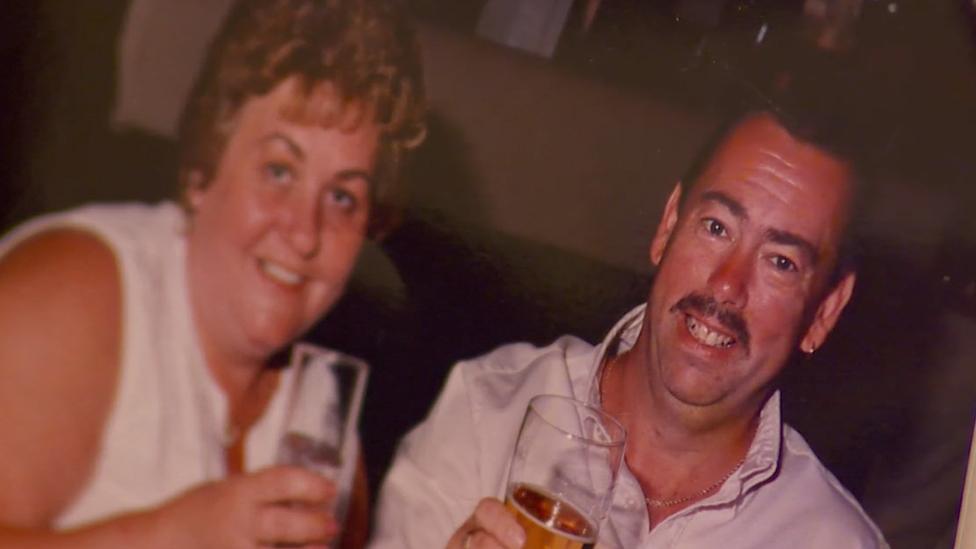
- Published22 July 2019
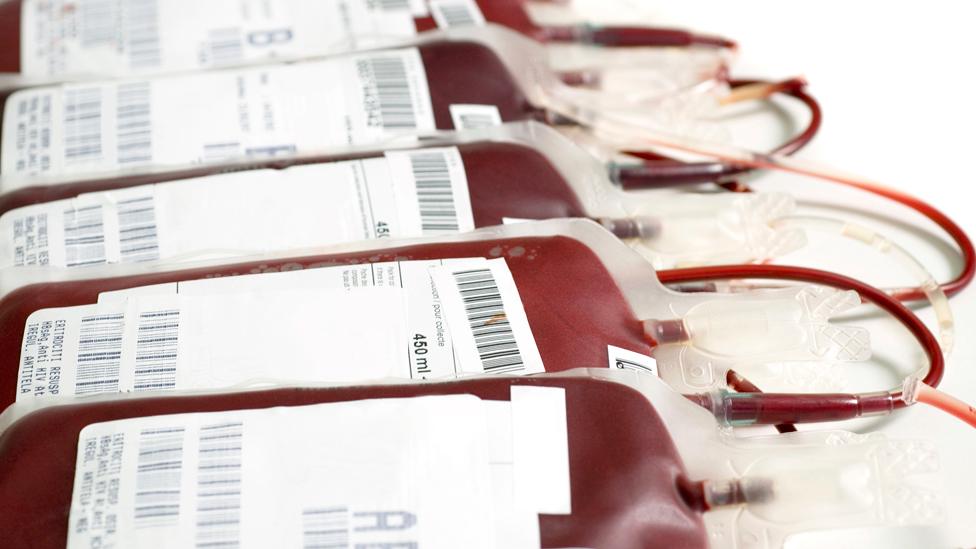
- Published30 April 2019
